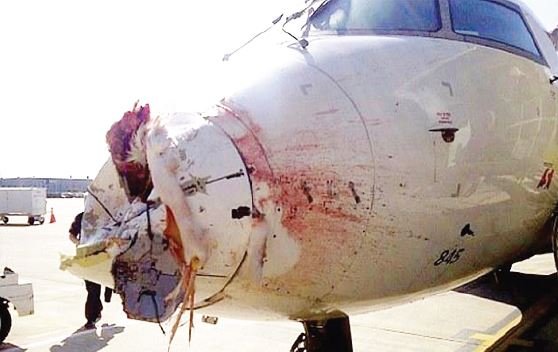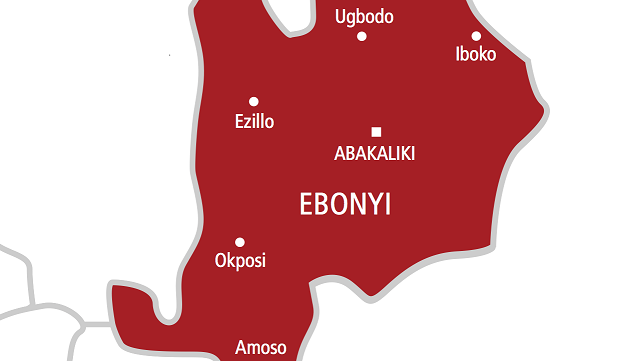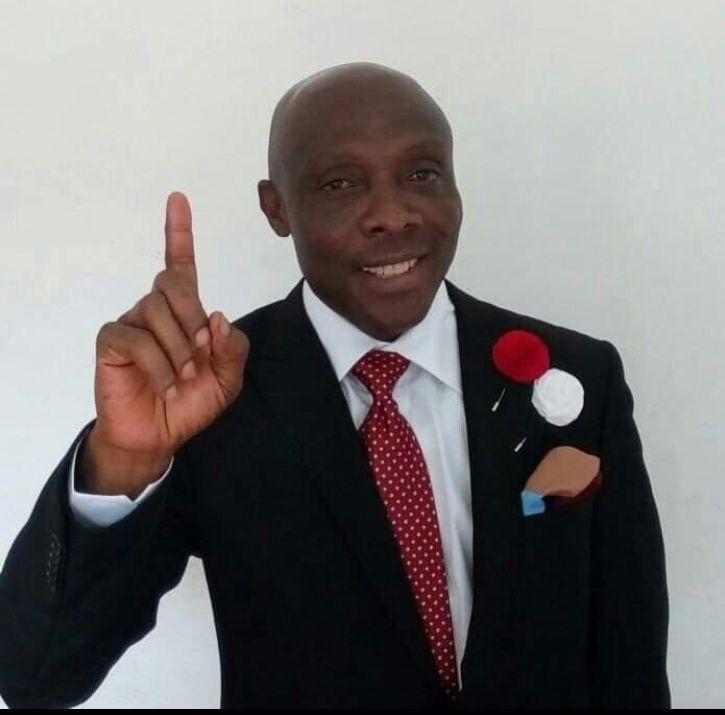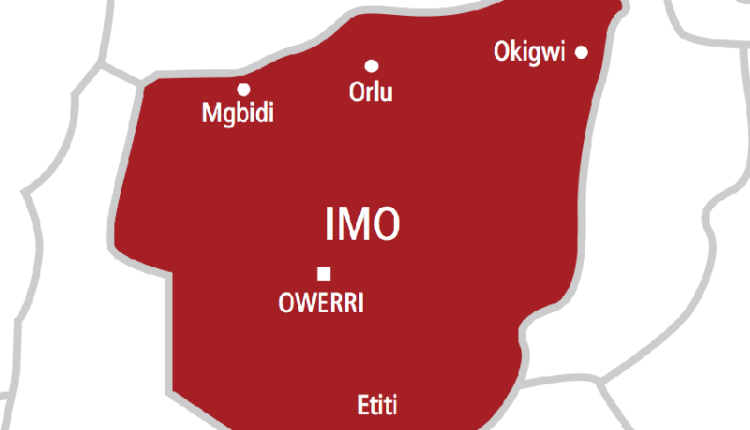
Of recent, flights aborted as a result of bird strikes are becoming rampant. The Nigeria Civil Aviation Authority (NCAA), the Federal Airports Authority of Nigeria (FAAN) and the Nigerian Airspace Management Agency (NAMA) have teamed up on an action plan to stem the tide of migratory birds hitting aircraft, writes KELVIN OSA OKUNBOR
Worried by the recurring incidence of bird strike affecting indigenous carriers, the apex civil aviation regulator, the Nigeria Civil Aviation Authority (NCAA) is teaming up with the Federal Airports Authority of Nigeria (FAAN) and the Nigerian Airspace Management Agency (NAMA) to develop an action plan to stem the tide of migratory birds hitting aircraft.
NCAA Director-General Captain Musa Nuhu, in a telephone interview with The Nation, said the three agencies have met thrice this year on the development as the aeronautical authorities have been working on the corrective action plan to address the menace. Besides the correction action plan, he said the NCAA was also monitoring the implementation of the plan.
He said: “The agencies are not just meeting over the rising incidence of bird strike, but we have met at least thrice this year on the matter. We have done this as part of measures to evolve an Action Plan that will reduce the incidence of bird strike. We will continue to meet to see to the implementation of efforts that will arrest the situation because it is a huge threat to safety.”
In 2017, Arik Air spent about N3.2 billion to fix aircraft which recorded 15 incidents of bird strike within twelve months. Aero spent over N2.1 billion to fix eight incidents of bird strike within 24 months. Medview experienced three incidents of bird strike forcing it to spend over N1.2 billion.
Dana Air, which recorded one incident of bird strike, spent N547 .5 million to fix its aircraft affected by the strike.
There are indications that Nigerian airlines lose at least $15 million (about N5.4 billion) annually to bird strike incidents across the country’s airports and airfields.
Bird strike incidents usually affect the engines of aircraft, which cost about $1.5 million (N547.5 million) to replace, depending on the type and capacity of the aircraft involved in the incident. This is apart from the cost of shipping the engine into the country.
Nigerian airlines experience at least 10 bird strike incidents annually, our correspondent gathered. In the past 24 months, there have been no fewer than 27 bird strike incidents recorded across the country’s airports.
Statistics of the incidents obtained by our correspondent indicated that the airlines encountered 14 bird strikes during take-offs and another 13 on landings, with half of the incidents happening at the Murtala Muhammed International Airport, Lagos.
In the last few months, Aero Contractors, Max Air and others have experienced bird strike on their aircraft forcing their pilots to initiate the return of their aircraft to the aerodrome where it took off, a development described in aviation parlance as the air return.
On Tuesday, a Max Air’s Abuja bound aircraft suffered a bird strike ten minutes after take-off at the Aminu Kano International Airport, (MAKIA) Kano. The aircraft was forced to return to Kano.
The Max Air B737 plane with registration number VM1645 which was slated for take-off at 1.30 pm had about a 30 minutes delay. The aircraft later took off around 2 pm with a full passenger load. Sources disclosed that the aircraft engine was hit by a bird during take-off, affecting some of the blades of the aircraft engine.
On Monday, the pilot of Aero Contractors Flight NIG382, which encountered a bird strike on take-off at the Port Harcourt International Airport (PHIA), returned to base within eight minutes after take-off.
Commenting on the incident on Tuesday, Capt. Nuhu pointed out that the pilot acted professionally in returning to base after it encountered the bird strike.
Nuhu said that the Boeing 737-500 with the registration number 5N-BKR was heading to the Nnamdi Azikiwe International Airport (NAIA), Abuja before the incident.
It was gathered that the aircraft departed PHIA for Abuja with 91 persons on board, including 85 passengers and six crew members at 2:06 pm and returned to base at 2:14 pm.
According to Capt Nuhu, the incident led to the damage of the aircraft’s blade, stressing that the airline’s engineers were fixing the damaged part of the aircraft.
Nuhu explained further that Aero Contractors brought another aircraft to airlift the passengers to Abuja within 90 minutes of the incident.
He said: “Boeing 737-500 aircraft with the registration number: 5N-BKR belonging to Aero Contractors departed Port Harcourt to Abuja, but, during take-off, it had a bird strike and the pilot continued the take-off, made a circuit and returned to land.
“That is what is supposed to be done. Pilots are trained for that. At the point he had the bird strike, he could not abort the take-off. So, he continued with the take-off and returned to base. They restarted the engine and discovered that some parts of the blades were damaged. Within 90 minutes, Aero Contractors came with a different aircraft to rescue the passengers.
“As we speak, maintenance is going on to fix the damaged blade and when they finish, NCAA inspectors will inspect it and certify it. If all the parameters -engines, blades and others- are okay, they will be released for flight.”
About two months ago, 100 Lagos-bound passengers were stranded at the Mallam Aminu Kano International Airport (MAKIA), Kano as an Aero Contractors aircraft ferrying them to Lagos was forced to make an air return.
The aircraft had taken to the skies a few minutes when the pilot in command observed some sound in the engine compartment, forcing him to initiate a return to base.
According to one of the passengers on board, the Boeing aircraft took off on the runway of Kano Airport at about 9.00 am on Sunday, when the pilot observed the noise from one of the engines.
On landing at the runway a few later, the pilot observed that the aircraft had ingested a bird, which affected some components of the engine.
The passengers said the airline personnel evacuated occupants of the aeroplane, as the aircraft could no longer continue with the flight.
The evacuated passengers remain stranded over five hours after they left the aeroplane with no concrete plans by AeroContractors to either put them in another aeroplane or consider the next line of action.
Some of the stranded passengers remain in the terminal building awaiting the next line of action, but those that could not bear with the excruciating condition have returned to their hotels and residence to fix another day for travel.
Some of the stranded passengers, who rallied to make an alternative arrangement was disappointed because one of the domestic carriers – Max Air they intended to board – had operated its scheduled flight in the early hours.








